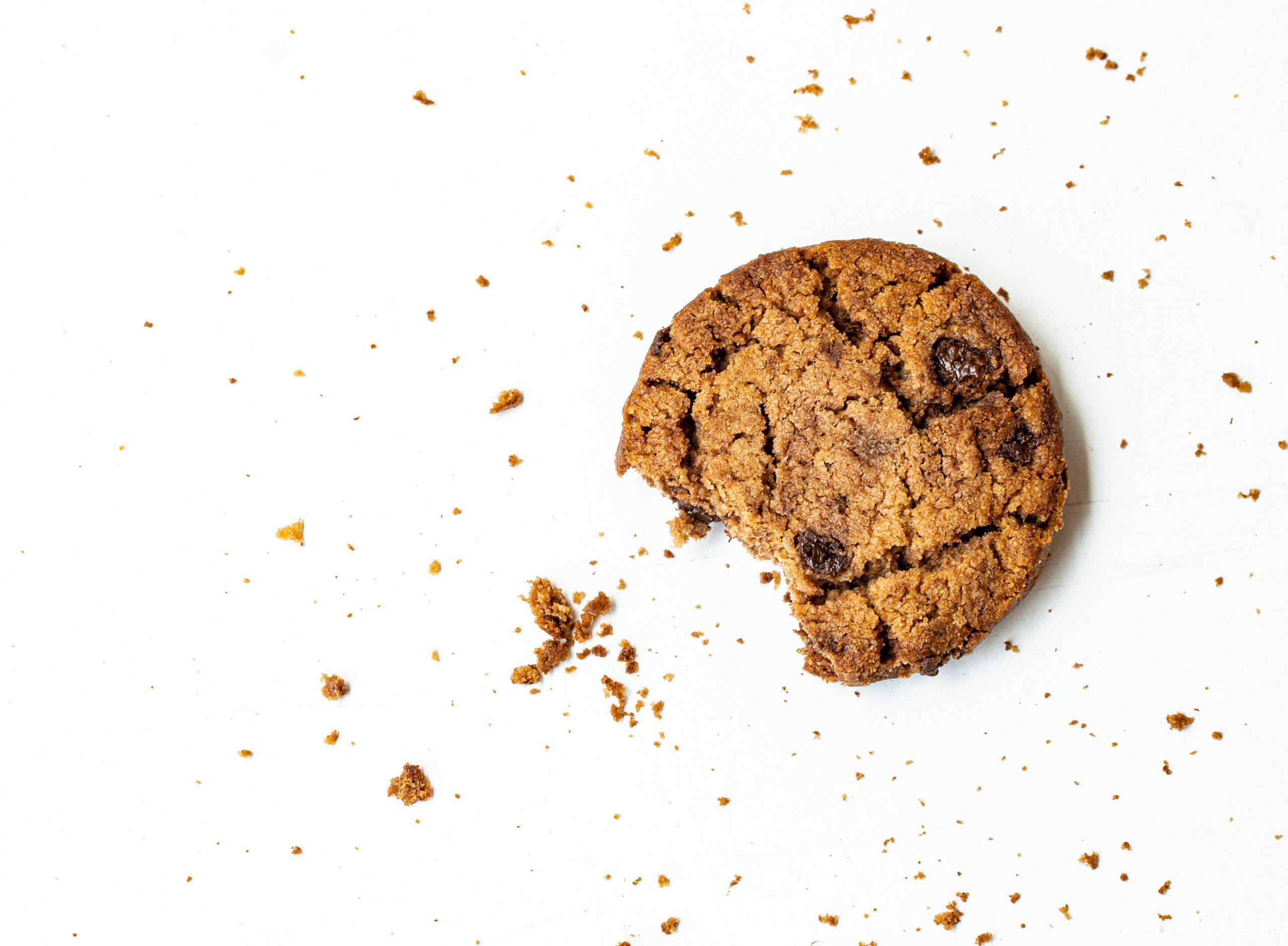News, ideas & inspiration from industry leaders

How the Cookie Is Crumbling
The thought leaders at One & All are here to help animal welfare marketers and fundraisers shift away from third-party cookies. (Sneak peek: Significant benefits lie ahead!)
What does our world look like without cookies? Well, we’re going to find out soon enough.
You’ve probably noticed the ever-present “This website uses cookies” permissions pop-up on nearly every website you visit. Cookies as we know them are crumbling.
As our world becomes increasingly digital, consumers are looking for more privacy than ever. And Big Tech is following suit, saying that consumers should decide how their data is used.
Google is poised to remove third-party cookies from Chrome by 2022, while Apple has already prohibited unauthorized third-party cookies on Safari. Earlier this year, Apple was set to require apps to obtain consumer permission before tracking activity.
What’s the Deal with Cookies?
In fundraising and marketing, we’ve all become increasingly reliant on cookies because, well, we use them to target donors and consumers based on behavior. A common example is if you shop online for tennis shoes, you’ll later notice ads for tennis shoes when you browse other websites. That’s because your browser has stored those third-party cookies, using this information to send you ads that will appeal to you.
So, for marketers and fundraisers — like us — who often leverage third-party data, this massive change could come with some hefty challenges.
According to AdWeek’s The Death of Cookies, “33% of publishers lack confidence in their contextual targeting as a replacement for audience targeting, and half (49%) are looking for a further solution to cover the potential loss of third-party tracking.” And a majority of companies have no solution in place for advertising in a post-cookie world.
What Is Google Planning?
This change has fundraisers and marketers eagerly searching for answers. Google’s Privacy Sandbox initiative aims to balance user privacy with a sustainable ad industry. After turning down proposals for cookie alternatives, they’ve sent marketers scrambling for new solutions with a 2022 deadline. In some states and countries, government regulations on cookies are already tightening.
With Google-owned properties such as Gmail and YouTube, brands will still be allowed to target individuals in certain circumstances, provided marketers bring their first-party data into Google through the Customer Match product or a future unknown product.
Outside the walls of Google, advertisers will not be allowed to use third-party data to target ads with Google technology. Instead, they’ll be required to use their proposed Federated Learning of Cohorts (FLoC), which replaces cookies with 1,000-person groups of people with common interests. This data would come from browsers that use machine learning to develop said cohorts.
Google says that FLoC tests and trials show “advertisers can expect to see at least 95% of the conversions per dollar spent when compared to cookie-based advertising.”
But Google has provided limited information on how these solutions actually work. Combine that with the fact that FLoC won’t be created by Google — these are generated by machine learning algorithms — and fundraisers and marketers are unsure of what this cookieless future looks like.
Shifting to First-Party Data
While acquiring first-party data may seem like a daunting challenge, the long-term benefits will ultimately enhance donor and customer relationships — and the customer experience (CX).
Many have anticipated this shift for years, and the organizations and brands who will be the most successful are the ones who have already begun a first-party data approach. First-party data is simply information you get directly from your audience, whether from behaviors or actions, such as using your website’s search tool, signing up for an email newsletter, or making a donation.
The solution here is to make adjustments to technology partners and overall tech stacks, partnering with data-management platforms that specialize in first-party data. Additionally, we’ll likely see more strategic and transparent partnerships based on data collection and ownership.
What’s Next?
We don’t know exactly what this cookieless future looks like. But One & All can help you navigate as we shift away from third-party cookies and into first-party data, new tools, and solutions. Below are some basics as we look toward our cookie-free industry.
How to Collect First-Party Data
When we’re acquiring this first-party information, it’s crucial we focus on the donor experience and that first touch point impact. Each interaction should be transparent from start to finish while also giving audiences a good reason to provide their data. This is where building a strong, emotional connection is imperative to finding individuals who trust you enough to provide their information. Here are a few recommendations:
- Focus on using first-party cookies
- Run promotions to collect email addresses
- Build your organic social media following
- Collect data from newsletters
- Obtain purchase data
- Move to platforms that manage first-party data over cookie-based data
- Consider incentivizing prospects with offers, matches, unlocking exclusive content, and more
- Optimize your website to deliver the best CX for prospects
- Utilize a functional, accessible data management system to turn first-party data into action
Benefits of First-Party Data
While there are still a lot of unknowns and a looming 2022 deadline, there are significant benefits we’ll see with this shift. First-party data is highly valuable and leads to:
- More trust with audiences
- Deeper connections with ad buyers
- Increased accuracy and data quality
- Better targeting
- Improved performance and return on investment
- More accurate measurement and attribution
Want to ask our experts? Join us next Wednesday, June 23, as Nathan Looney, One & All’s Director of Digital Strategy, explores what Google is planning, how that will impact animal welfare brands, and why developing your tech stack matters so much. Click here to register.
If you have immediate questions or concerns regarding cookies and how One & All can help your team navigate the transition, connect with us.
Learn More
Info session 6/23, 2 pm ET: Data Privacy & How it Will Affect Animal Welfare
Photo: Vyshnavi Bisani on Unsplash


